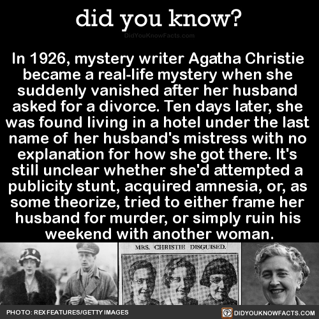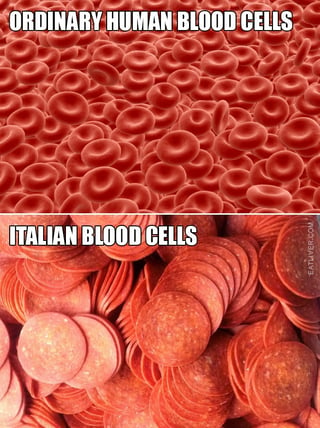 How can you tell if a commercial construction loan request is dead on arrival? The most common reason why a bank will reject a commercial construction loan is because the developer has not contributed enough equity. Quick aside: Ninety-nine percent of all commercial construction loans are made by banks. What constitutes equity? I recently wrote an excellent article on equity for development projects.
How can you tell if a commercial construction loan request is dead on arrival? The most common reason why a bank will reject a commercial construction loan is because the developer has not contributed enough equity. Quick aside: Ninety-nine percent of all commercial construction loans are made by banks. What constitutes equity? I recently wrote an excellent article on equity for development projects.
Here is a quick napkin test that will tell you whether or not you should waste your time working on a construction loan request. Compute the Loan-to-Cost Ratio by simply dividing the Construction Loan Request by the Total Cost of the project. The Loan-to-Cost Ratio must be 75% or less in the post-Great-Recession market. Put another way, the developer must pay for at least 25% of the Total Cost.

Because I've been doing this for 37 years, I can compute a Loan-to-Cost Ratio in less than one minute; but maybe a quick review will be helpful for you. The Loan-to-Cost Ratio ("LTC") is defined as the Construction Loan amount divided by the Total Cost of the project (all multiplied by 100%).
Loan-to-Cost Ratio = Construction Loan / Total Cost
Historically banks were satisfied if the Loan-to-Cost Ratio was 80% or less. In other words, banks were satisfied if the developer was paying 20% of the Total Cost. That 20% of the Total Cost represented his equity or, in the parlance of commercial mortgage finance, his skin in the game. Unfortunately after the huge losses suffered by banks in commercial construction lending during the Great Recession, most small banks today limit their loan-to-cost ratios to just 65% to 72%.
The big banks, when making the really large commercial construction loans ($20 million+), limit their loan-to-value ratios to just 55% to 60%. Fifty-five percent??? Yup. Ouch! How can a developer come up with 45% of the Total Cost? There is a type of equity called gap equity, that takes a developer from 55% LTC up to 80% LTC. I hope to blog on the subject soon.

Now in order to compute your Loan-to-Cost Ratio, you will need to know the Total Cost. Total Cost is defined as the sum of the land cost, the hard costs, the soft costs, and the contingency reserve (5% of hard and soft costs).
Total Cost = Land Cost + Hard Costs + Soft Costs + Contingency Reserve
Most developers underestimate their Soft Costs. The Soft Costs include such things as architectural fees, engineering fees, report fees (environmental impact reports, appraisals, toxic reports, geological reports, surveys, etc.), governmental fees (plan check fees, inspection report fees, sewer hook-up fees, etc.), bonding fees, title commitment fees, attorneys fees, loan fees, mortgage broker fees, and the interest reserve. Everyone underestimates the interest reserve. Soft costs usually range from 40% to 55% of hard costs. If you don't trust the developer's soft costs, use at least 40% of the hard costs for soft costs.
The Contingency Reserve should be 5% of hard and soft costs. Why not 5% of the Land Cost as well? Most developers already know the exact cost of the land. There is unlikely to be a cost overrun on the land.

Are you a wealthy developer or investor? The sister company of C-Loans, Inc. is Blackburne & Sons Realty Capital Corporation. We have been selling 8% to 12% first mortgage investments to wealthy private investors for 37 years. We currently have around 1,500 private investors, and we are servicing a portfolio of over $50 million. Due to a recent law change (JOBS Act), Blackburne & Sons can now accept investments from accredited investors (gotta be accredited) as small as $10,000 in each loan from anywhere in the country, not just California.
This is a family firm. I'm George III, the founder and the dad. I am a licensed attorney in both California and Indiana. My sons, George IV (Ohio State) and Tom (Purdue), are both Eagle Scouts, as am I. Cisca and I have been married for 34 years. (My staff have nominated poor Cisca for sainthood. Ha-ha!) My point is that we are steady-eddie folks.
You should sit on our investor mailing list for a couple of years and then someday try us with a tiny investment (as small as $5,000 in your first deal) in one of our loans. We are not a fund! Hard money mortgage funds tend to (85% of the time) fold up with ugly consequences during bad recessions. In contrast, if you invest with us you will actually own, say, 7%, of the first mortgage. But you must be an accredited investor!
You need a commercial real estate loan, and you have diligently been doing your research. Is it finally time to actually apply for that commercial loan?
For just $79.95 you can buy a recently updated list of over 2,500 commercial lenders. If money is tight, you can buy a Regional List (750+), for the region that contains the property in question, for just $39.95.
Many commercial mortgage brokers are excellent salesmen, but they starve because they make a dozen preventable mistakes every single day. This 5-hour course in the Practice of Commercial Mortgage Brokerage contains more than 60 practical lessons in commercial mortgage brokerage. I consider it to be the crown jewel in my training series, the best of my life's work. It is the only course I sell that comes with a 100% satisfaction guarantee.
Do you need a business loan secured by accounts receivable, inventory, or equipment. Do you need a lease to acquire some piece of equipment?
We have a superb multifamily program with "A" quality rates for deals with a tiny black hair on them.
Blackburne & Sons, my own hard money shop, offers bridge loans for just 1 point.
Every commercial mortgage broker should use a fee agreement on every commercial loan. Our agreement is quite short, and it is fair to both the borrower and the mortgage broker. You commercial mortgage brokers will kick yourself when you lose a $20,000 fee.

Do you own a real estate or mortgage website? By simply putting a "Commercial Loans" link to C-Loans.com on your web site, your web site can work day and night to generate referral fee income. We once paid $21,250 to a guy named Alan Dunn. Somebody came to his website, saw a "Commercial Financing" link, clicked on it, came to C-Loans.com, and then applied for $17 million loan. Alan was asleep at the time! (We actually have no way of knowing that, but Alan certainly could have been asleep, and it makes for a great story. Ha-ha!)
Have you tried our latest commercial mortgage portal? CommercialMortgage.com has four times more lenders than C-Loans.com, and it is far easier to enter a deal.
Is it finally time to actually learn the profession that you practice? Just sayin'...
Did you learn something today? Get two free training lessons in commercial real estate finance every week.
Got a buddy or a co-worker who would benefit from free training in commercial real estate finance (CREF)?

















